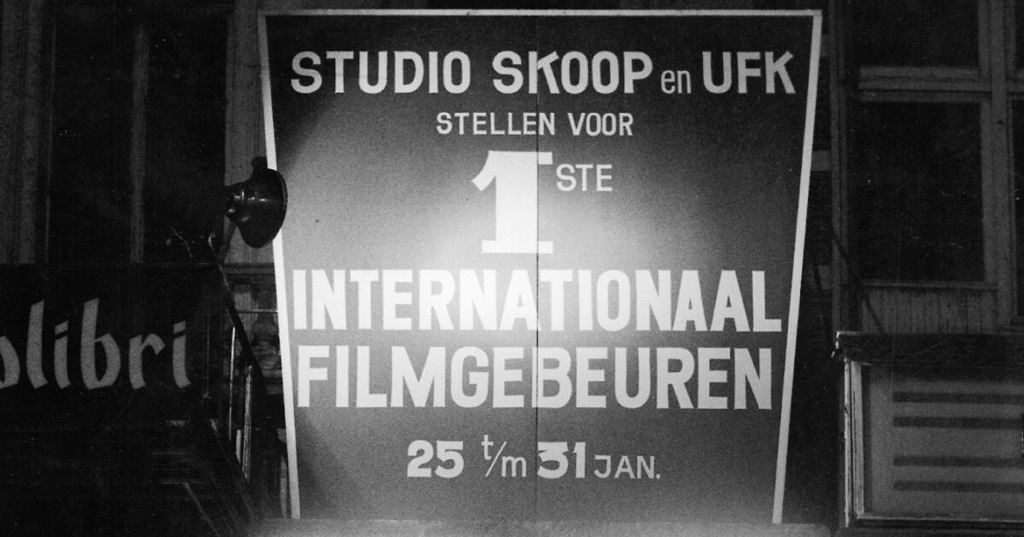“There were people interested in cinema who read film magazines, and they were reading about films they couldn’t see unless they went to Paris or London,” says Wim De Witte, the Ghent Film Festival’s Programme Director, about the early years of the movie extravaganza.
It’s hard to imagine it now, but the festival – which rivals Europe’s finest in size and stature – was created by a man who was almost penniless: founder Ben ter Elst spent his youth sleeping rough on the streets of Europe so he could see movies the moment they hit the cinemas.
The festival is celebrating its 50th edition this year, having long ago established itself as a world-class event, lauded for its concerts of film music and the World Soundtrack Awards, the only ceremony in the industry dedicated to film (and now television) composers. This year, the Brussels Philharmonic, conducted by Dirk Brossé, will perform work by composers Stephanie Economou, Borislav Slavov and Gustavo Santaolalla, who will all be present at the concert.
It was in 1974 that ter Elst, who had opened the Studio Skoop cinema four years earlier, launched the festival. “Everyone told him he was crazy, and it wasn’t going to work,” says Paya Germonprez. “But it did, and it was a success.”
Germonprez, 69, glances out of her terrace window often as she reflects on the early years of the cinema, which still exists today, known affectionately as “the Skoop”. Her 2017 book Skopiumschuivers tells the complicated story of ter Elst, the cinema he opened and the festival he launched. She had a front-row seat, as she was married to him for 20 years.
“Starting a cinema was his dream,” she says. “He was very young, you know. He was in Paris in ’68, he was in Berkeley, he worked for six months in Alaska felling trees. But he had one thing in mind all of that time, and that was to start a cinema. Because he was absolutely obsessed with movies.”
Although ter Elst had seen the world, he “fell in love” with Ghent. This was the place he wanted to programme films that most people never had the chance to see. He got very lucky: an old cinema was shutting down and he was offered all its equipment for a knockdown price. He rented a building and opened the Studio Skoop, and a café next door to boot.
“From the very beginning he looked for films that were not in the normal circuit,” says Germonprez. “And he started organising focus weeks, dedicated to Godard or Resnais, for instance, or to Japanese cinema.”
A ‘film happening’
In those days there were very few film festivals outside of Cannes and Venice, but ter Elst decided to launch one. “He was Dutch,” says Germonprez. “No one here in Flanders would have had the courage to do this. The Dutch, they have something about them.”
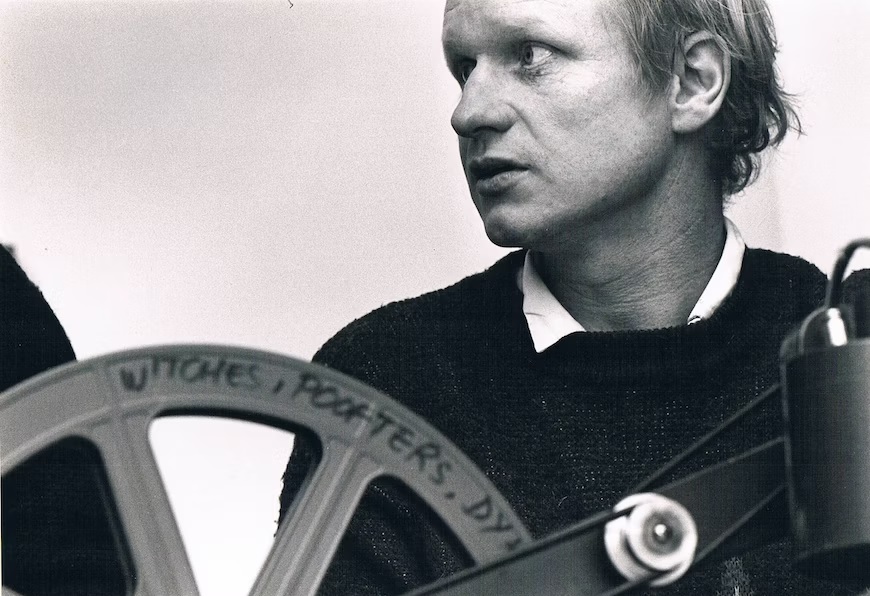
Festival founder Ben ter Elst
In 1974, he staged the Eerste Internationaal Filmgebeuren Gent, stubbornly referring to it as a “film happening” rather than a festival. “Festivals were a competition, and he didn’t want it to be competitive. He did not want to give out prizes, he did not want it to be commercial,” Germonprez says.
That ideal would eventually mean the end of the pair’s involvement with the festival. It followed many turbulent years during which ter Elst, an enfant terrible, would battle with the tax man, the zoning authorities and the police. In one life-altering evening, he screened A History of the Blue Movie – a compilation of scenes depicting the history of pornography – and was promptly arrested. He was then considered a sex offender, which made it impossible for him to run the cinema or the festival on his own.
He brought in partners to help with the festival but eventually disagreed with their idea to pursue commercial sponsors and government funding. “He decided to stop the whole co-operation and take his festival back,” says Germonprez. But by then the name had been registered, and “he had nothing anymore. He spiralled into a depression. He was not able to function.” Germonprez worked as an artist, textile designer and restauranteur, eventually paying off some of the debt.
They sold the cinema to one of their employees, who still owns it and its legendary café today. Germonprez lives just a few minutes away. Ter Elst also lives in the area but has no association with the festival.
His fears about rampant commercialisation were not unfounded. At one point, the Ghent Film Festival seemed to be overrun by sponsorships, selling swaths of tickets to companies. “We were receiving more than 2,000 people in the evenings, who were invited by a company for a film and reception,” explains current programmer De Witte. “These are tickets that were then not sold to the public, which had a major impact on the audience.”
In recent years, the festival has scaled back to being one-third funded by sponsorships, one-third by government subsidies and one-third by ticket sales. “It’s a much healthier balance,” says De Witte. “The sponsorships are there to make the festival possible, not the other way around.”
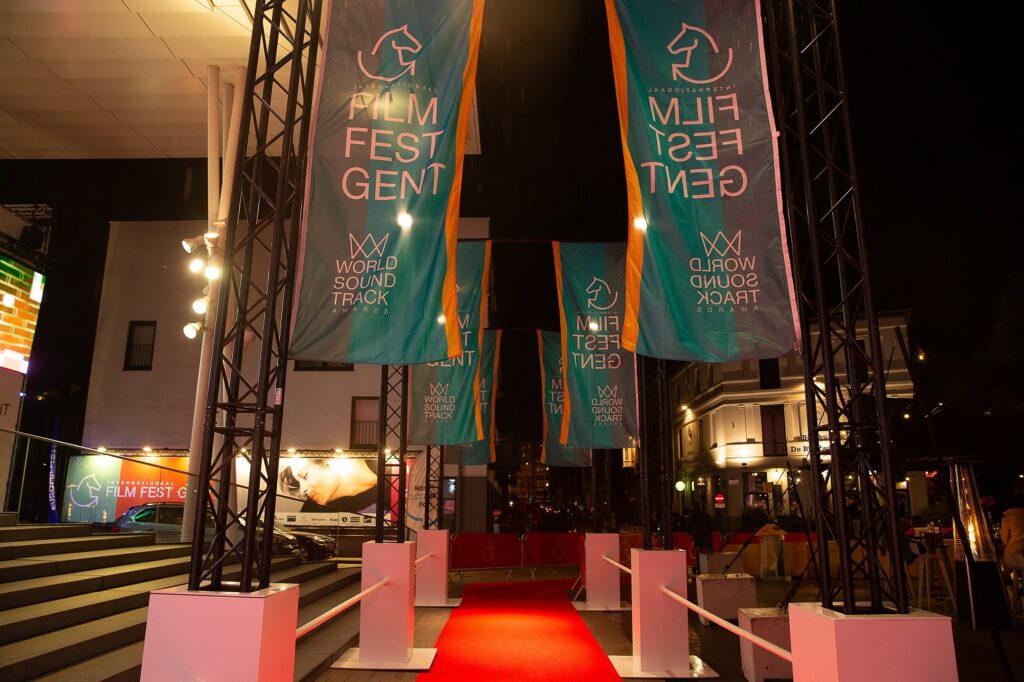
The festival's red carpet
For the 50th edition, a special section is dedicated to films plucked from the past five decades of programming. Thousands of titles were whittled down to just 15, with priority going to films screened in the presence of the director or that won prizes. This includes Pedro Almodovar’s Matador, Jane Campion’s Bright Star, Robert Altman’s Short Cuts and Peter Greenaway’s The Cook, the Thief, His Wife & Her Lover.
With more than 100,000 seats filled per year, the festival remains popular, even as streaming seems to be taking over. “Cinema has been declared dead so many times,” De Witte says. “Literally, when the Lumière brothers held their first screening, it was totally full, and when the second screening was not full, cinema was already in crisis! But I think that cinema has proven itself. There’s still a big audience for worthwhile stories.”
Celebrating a city built by migration
Here, directed by Belgian filmmaker Bas Devos premieres at the Ghent Film Festival. Known for Ghost Tropic, in which a woman makes her way home on foot through Brussels in the middle of the night, he just made Here, another film that shows us the capital in a whole new way. He spoke to me.
Directors who live in Brussels do not always set their movies here. Why do you?
The way that people interact here is different from most places. And this has to do with language. People come from all over the world, there are so many nationalities. The first question people ask is always, “Do we speak the same language, do you understand what I’m saying?” That is very particular. If you go to New York, you expect people to speak English. If you go to Brussels, you don’t really have a clue what language someone will speak if you meet them in the street. It makes sense in the 21st century to have a city like Brussels, and I think we will see more of these cities that are really minority-based and built by migration.
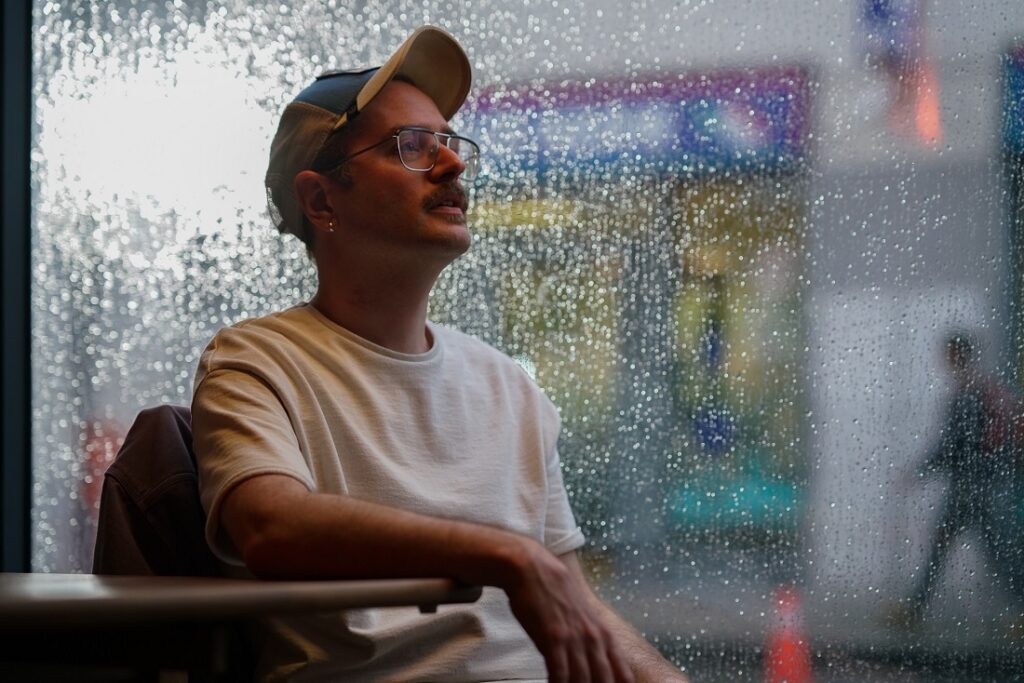
Bas Devos
Is that why you made the central character of Here, Stefan, a Romanian migrant? In the film, he is struggling with whether he should return to his homeland.
The actor, Stefan Gota, is a friend of mine. Parts of his story are the stories we see all around us, people working in construction, but he sort of found his way out of that and discovered his love for theatre and started stage directing. I was just really curious how he found his way.
We started to talk about this macroeconomic question of labour migration. We interviewed Romanians because he didn’t actually have a sense of how large the community really is. And it’s giant. There are 43,000 Romanians living in Brussels. It is the fastest-growing community of migrants in the city. We started to get a sense of commonality in these stories. And this was about the returning. A lot of them have a very clear connection to the homeland and a dream, a wish, to go back.
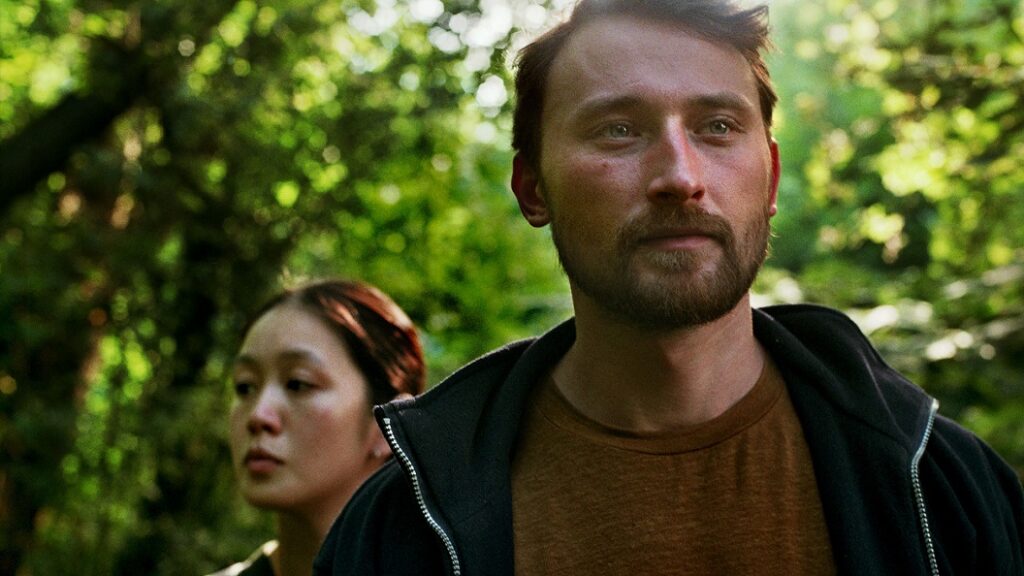
Scene from Here
The other main character in the film, Shuxiu, is of Asian descent, but she is Belgian, connected in a way that Stefan isn’t.
Her character is always confronted by an assumption that she is not Belgian. People always remind her that she doesn’t look like us. Whereas for Stefan, it’s the opposite. No one questions him. I was thinking a lot about the ground on which you live and the ground that you claim. Our relationship with the ground we claim is so different from how plants do it, especially moss.
Right, the moss! It figures heavily in this movie, as Shuxiu is a bryologist – someone who studies mosses.
It’s interesting to see how plants deal with all of this. There is a lot of negotiation going on in the plant world. What I find beautiful about moss is how it gives more to its environment than it takes. And how it creates an environment where other species can thrive. It has a quality of generosity. I truly believe that what makes us most human is our generosity, not our animosity. And in film, we are used to narratives that flip this around. The plot is instigated by a violent event, either emotionally or physically. It has to happen for us to tell a story. This film is a way of rejecting that.

